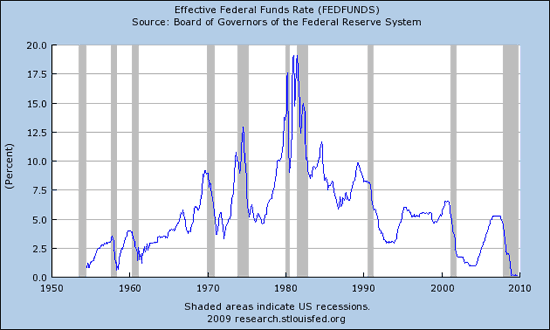Listen Up Muni Bond Investors…
If you’re someone who owns and invests in Muni Bonds, you need to read this report! I’ve been saying for quite some time that bond investors have enjoyed the best of times as rates have moved from historic highs back in 1980 until now, but now that interest rates have reached zero it is time to reevaluate your thinking in terms of these bonds, especially with government spending ramping at the same time that tax revenues are crashing. Remember, Munis have a historically low default rate, but then again, municipalities have NEVER been as saturated with debt as they are now. It is the power of taxation that municipalities possess, but as that power now appears limited, just exactly how do those debt payments get made?

That’s a question that Mr. Sheehan, of Welling & Weeden, answers in his terrific and insightful report, “Dark Vision – The Coming Collapse of the Muni Bond Market.”
Now, before you dive into this report, keep in mind the bond market updates I’ve been giving over the past year or so… as equities appear set to begin the next leg down, there could come with it a great opportunity to unload Munis for those who are stuffed with them. So, remember that rising rates are not good for bond prices and that you need to buy bonds when rates are high and about to move lower… you need to sell when rates are low and about to move higher. While I think that rates will stay relatively low for some time to come, the risk is that defaults begin to occur and that drives rates higher.
The loss of confidence I see coming is going to not only hit the dollar, but it could very likely hit municipal debt instruments first. Consider this and Sheehan’s report fair warning (reprinted with permission, ht David):
I want to add a little color on Municipal Bonds by showing what’s currently happening in that market…
Municipal Bond Yields Rise as Week’s Sales Reach 4-Month High
By Jeremy R. Cooke
Oct. 30 (Bloomberg) — State and local governments led by California sold $11.8 billion of fixed-rate bonds this week, the most in more than four months, pushing 20-year benchmark tax- exempt yields to their highest level since late August.
The most populous U.S. state refinanced voter-approved debt to patch budget deficits with a $3.5 billion deal. Connecticut, Florida, Kentucky, Missouri and New York City also raised money for infrastructure projects through the Build America Bonds program, which provides 35 percent interest rebates from the federal government for selling taxable debt in lieu of borrowing tax-free.
Municipal issuers sold $7.8 billion in tax-exempt issues and $4 billion in taxable debt, based on revised data compiled by Bloomberg. The Bond Buyer newspaper’s weekly yield index of general obligation bonds due in 20 years rose 8 basis points, or 0.08 percentage point, to 4.39 percent, the highest since 4.53 percent at the end of August.
Issuance in October exceeded $40 billion even as investors’ appetite for yields below 4 percent waned, forcing borrowers to pay more on new issues. The Merrill Lynch Municipal Master Index, which measures the total-return of state and local debt, fell almost 2.5 percent through yesterday, the biggest monthly decline since a 5.1 percent drop in September 2008.
This week’s sales sent the amount of Build America Bonds sold since the Obama administration’s economic stimulus created the program this year to $47.4 billion, Bloomberg figures show.
Municipal bonds advanced today, sending yields on 10-year general obligation debt lower by 1 basis point to 3.17 percent, according to a daily survey by Municipal Market Advisors of Concord, Massachusetts. The index is 21 basis points higher than at the end of September.
Weekly issuance was last this high in the period ended June 12, when governments sold $11.9 billion, according to Bloomberg data. The busiest week this year, the one ended April 24, produced $15.4 billion in sales, the figures show. (emphasis added)
Note that yields fell yesterday as money moved out of equities, but that in the past 4 months yields (rates) have been rising, thus sending the price lower.
If we’re beginning the C wave down in Equities, I think it’s likely that bonds will do okay as money flows out of stocks, but I think eventually that tide will turn. It may be 2 years, it may be 6 months, or it may be tomorrow, but at some point interest rates are going to go higher, and again, there is now a serious risk of default as municipalities spend far more than they are taking in. Yes, they do have the power of taxation (blood out of a turnip?) but they do not have the power of the press. That said, I can see the Federal Government stepping in with their printing press to rescue failing municipalities, but now we’re getting into playing favorites and politics, the area were revolts are bred.
I’m just saying, don’t wait until that market is gone, gone, gone…
- Bulenox: Get 45% to 91% OFF ... Use Discount Code: UNO
- Risk Our Money Not Yours | Get 50% to 90% OFF ... Use Discount Code: MMBVBKSM
Disclaimer: This page contains affiliate links. If you choose to make a purchase after clicking a link, we may receive a commission at no additional cost to you. Thank you for your support!


Leave a Reply